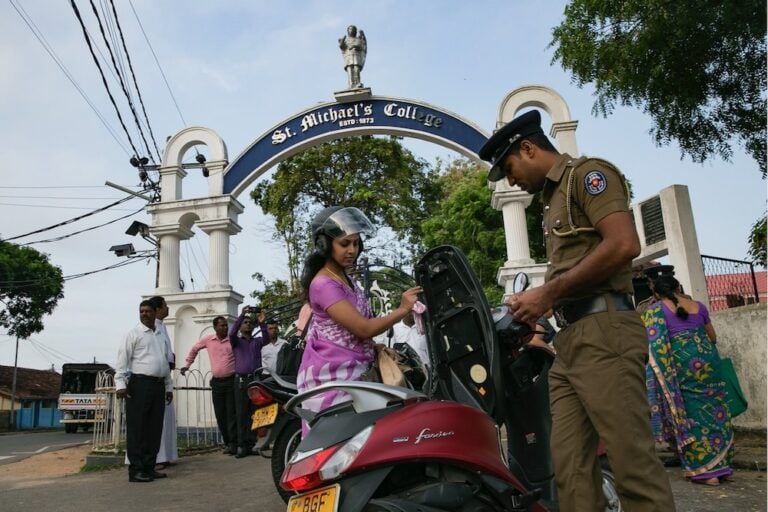(ARTICLE 19/IFEX) – The following is an ARTICLE 19 press release: 21 July 1999 – For immediate release SRI LANKA: PARLIAMENTARY CALL FOR MEDIA LAW REFORM RECEIVES INTERNATIONAL SUPPORT Two leading international press freedom organisations today welcomed a motion before the Sri Lankan Parliament which calls for urgent reform of the country’s media laws. ARTICLE […]
(ARTICLE 19/IFEX) – The following is an ARTICLE 19 press release:
21 July 1999 – For immediate release
SRI LANKA: PARLIAMENTARY CALL FOR MEDIA LAW REFORM RECEIVES INTERNATIONAL
SUPPORT
Two leading international press freedom organisations today welcomed a
motion before the Sri Lankan Parliament which calls for urgent reform of the
country’s media laws.
ARTICLE 19, the International Centre Against Censorship, and the
Commonwealth Press Union (CPU) released a joint statement in support of the
motion and urged the Sri Lankan government and opposition to work together
to end censorship and repeal repressive media laws.
According to Andrew Puddephatt of ARTICLE 19 and Lindsay Ross of the CPU:
“Censorship has been a principal cause of the conflict and ethnic division
which has bedevilled Sri Lanka over many years. Successive governments,
including the People’s Alliance today and previous United National Party
governments, have kept tight control over the media and have prevented
freedom of debate about the country’s problems and how they might be
resolved. All too often, partisan politics have been given precedence over
the public interest.”
ARTICLE 19 and the CPU said they especially welcomed the call by MPs for the
repeal of provisions on criminal defamation, under which several editors and
journalists are being prosecuted and face possible prison sentences, and for
the introduction of a freedom of information act.
Andrew Puddephatt and Lindsay Ross added:
“These changes, and others which were proposed by the government-appointed
Goonesekera committee, would greatly enhance media freedom and strengthen
democracy in Sri Lanka. But the government must also go further and remove
direct censorship of the conflict and divest itself of ownership of Lake
House, the main newspaper publishing group.”


